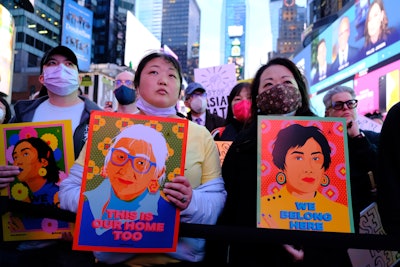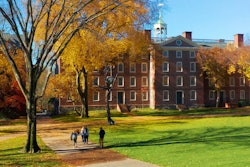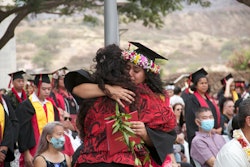
That’s according to the second report from Stop AAPI Hate, a coalition between equity organization AAPI Equity Alliance, civil rights group Chinese for Affirmative Action, and San Francisco State University’s Asian American Studies program. The new report, Two Years and Thousands of Voices, highlights data collected through their website between March 19, 2020 and March 31, 2022 and documents almost 11,500 incidents of anti-AAPI hate.
The majority of those instances were verbal harassment that occurred in public spaces, disproportionately targeting women and vulnerable populations. Most reported incidents do not meet the criteria to qualify as criminal hate crimes, which means they cannot be prosecuted.
To reduce discrimination and bias, the report recommends policies that strengthen and improve education, robust community responses to hateful incidents, and an expansion of civil rights. Experts said that institutions of higher education have a critical role to play in this work.
“The surge of racism has continued against AAPI—these are horrific, traumatizing incidents, one out of five respondents experienced trauma,” said Dr. Russell Mark Jeung, a professor of Asian American studies at San Francisco State University and Stop AAPI Hate co-founder. “What’s new is that the community overall has really fought back well, and we’ve seen some remarkable changes and efforts to resist the racism in the last year.”
Increased community responses include recent successful pushes from activists to include AAPI content in K-12 curriculum in eight states, and Assembly Bill 2448 in California, which would classify harassment as a public health issue impacting all marginalized groups.
 Dr. Vivian Louie, professor of urban policy and planning and director of the Asian American studies program and center at Hunter College in New York City.
Dr. Vivian Louie, professor of urban policy and planning and director of the Asian American studies program and center at Hunter College in New York City.





















